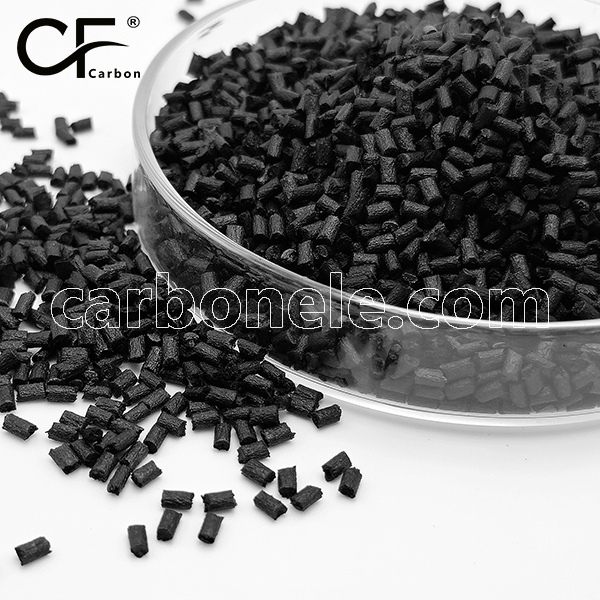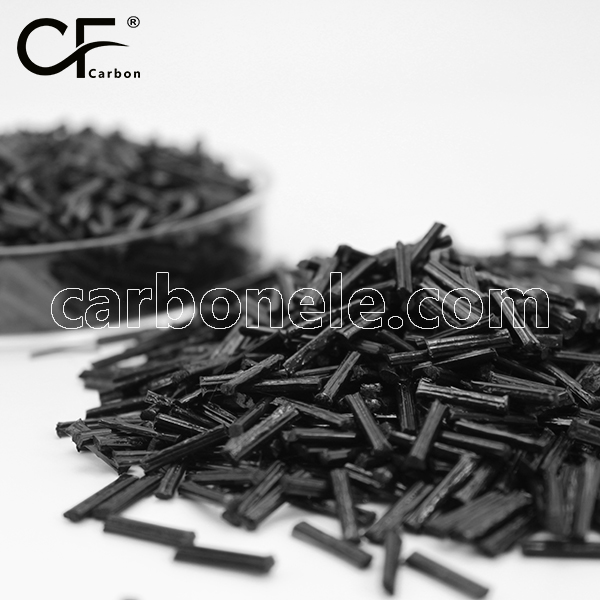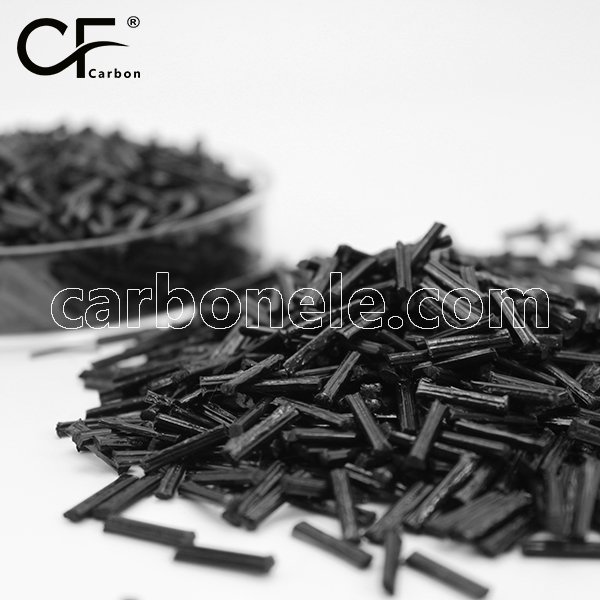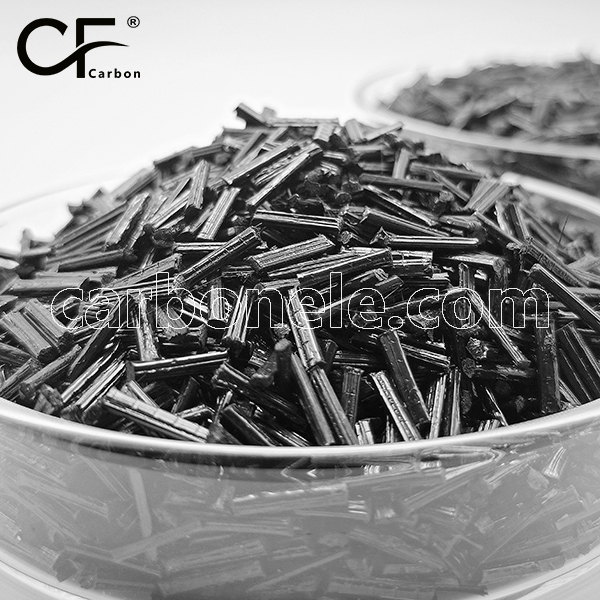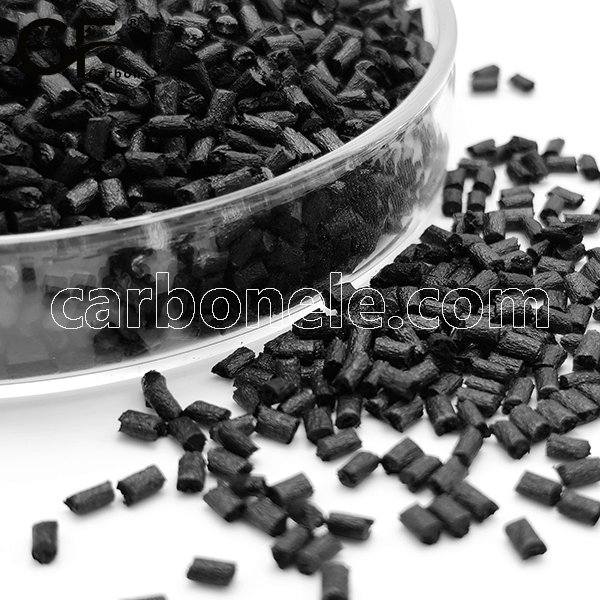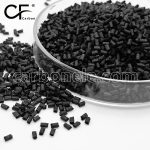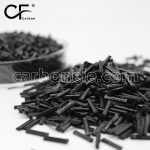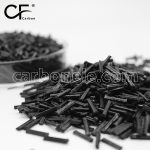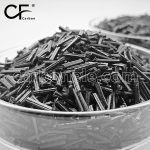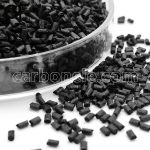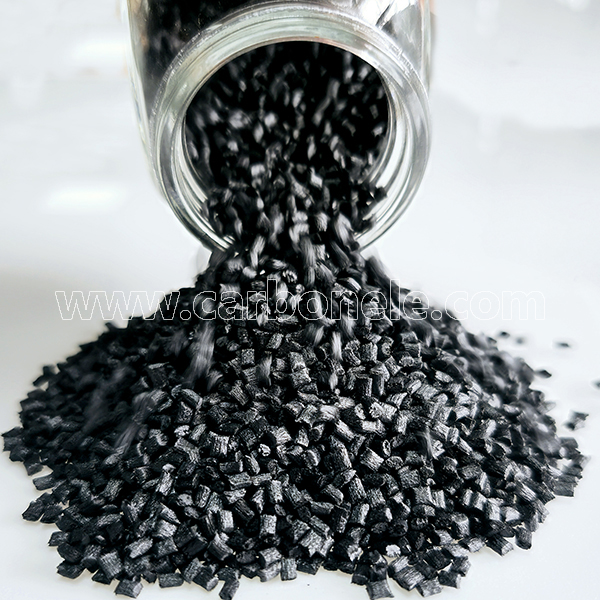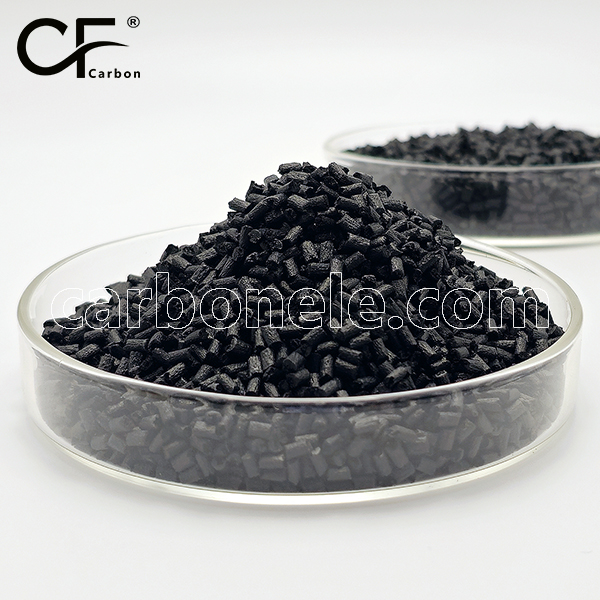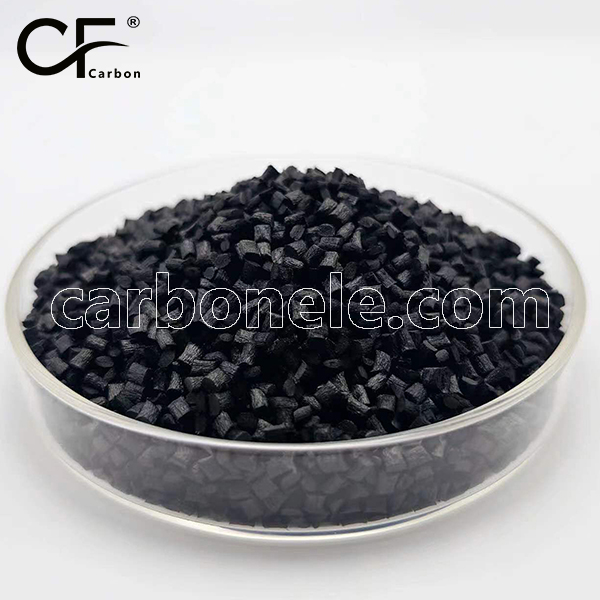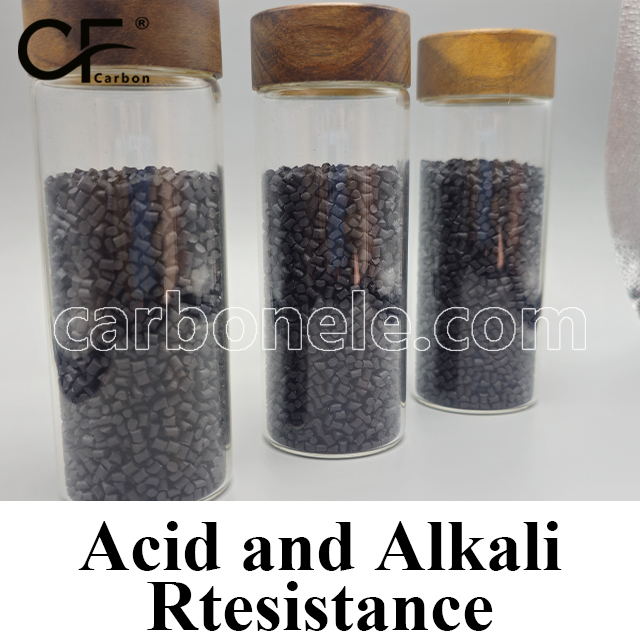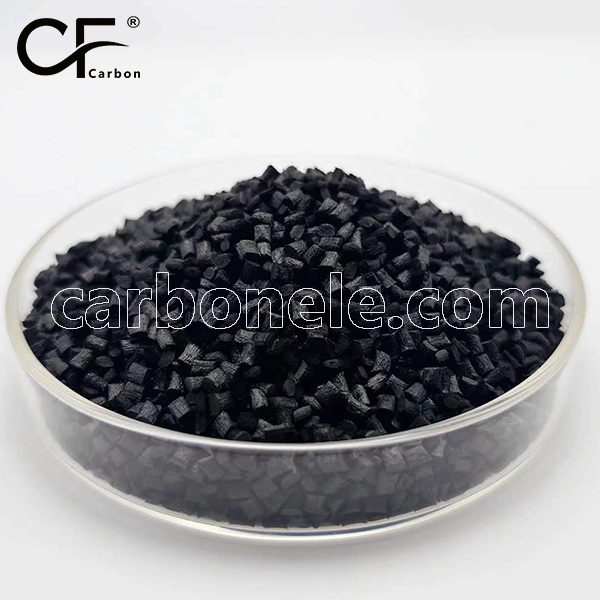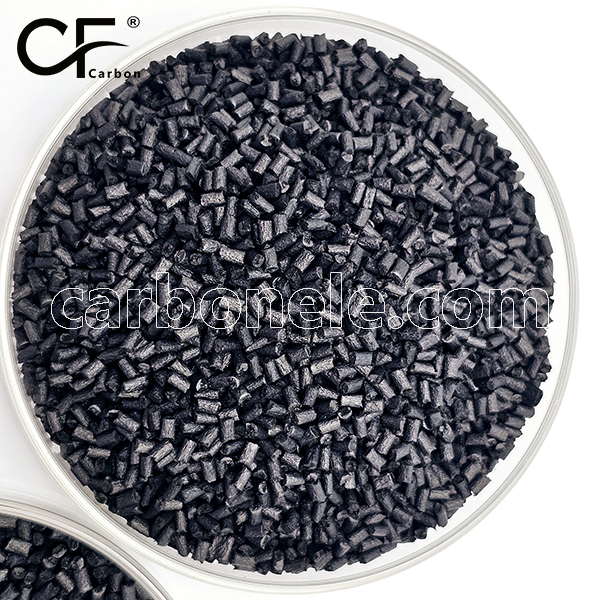
PA12-CF10 CF Nylon for Gears
- Model number: PA12-CF-BCA1
- Matrix Resin: Polyamide12 (Nylon12) (PA12)
- Reinforcing Filler: Carbon fiber
- Appearance: Granules
- Grade: Injection/extrusion grade
- Packaging: 25kgs/bag
PA12-CF10 CF Nylon for Gears: The Ultimate Engineering Solution
When it comes to high-performance engineering plastics, PA12-CF10 stands out as a remarkable material that combines the best of both worlds: the versatility of nylon and the strength of carbon fiber. This innovative composite material is specifically designed to meet the demanding requirements of modern industrial applications, particularly in the manufacturing of gears. With its unique blend of properties, PA12-CF10 offers engineers and designers a reliable solution that delivers exceptional performance while reducing weight and improving efficiency.
Understanding PA12-CF10 CF Nylon
PA12-CF10 is a specialized composite material that consists of polyamide 12 (PA12) reinforced with 10% carbon fiber. Polyamide 12, commonly known as nylon 12, is already recognized for its excellent mechanical properties, chemical resistance, and low moisture absorption. By incorporating carbon fiber into the matrix, the resulting composite material gains significant improvements in strength, stiffness, and dimensional stability. The carbon fibers act as a reinforcing agent, distributing stress evenly throughout the material and preventing deformation under load. This makes PA12-CF10 an ideal choice for applications where both durability and precision are critical.
Key Characteristics of PA12-CF10 CF Nylon
One of the most notable features of PA12-CF10 is its impressive strength-to-weight ratio. The addition of carbon fiber enhances the tensile strength and rigidity of the base nylon material, allowing it to withstand higher loads without adding unnecessary weight. This is particularly important in applications where reducing mass can lead to improved performance and energy efficiency. Another significant advantage is the material’s exceptional wear resistance. Gears and other moving parts are subject to constant friction, and PA12-CF10’s carbon fiber reinforcement minimizes wear, extending the lifespan of components and reducing maintenance requirements.
Thermal stability is another area where PA12-CF10 excels. The material maintains its mechanical properties across a wide temperature range, making it suitable for use in environments where temperatures may fluctuate. Additionally, PA12-CF10 exhibits low moisture absorption compared to unfilled nylons, which helps prevent dimensional changes and maintains performance in humid conditions. The carbon fibers also contribute to the material’s excellent fatigue resistance, ensuring that components made from PA12-CF10 can endure repeated stress cycles without failing.
Application Spotlight: Gears
Gears are a perfect example of where PA12-CF10 truly shines. In the automotive industry, for instance, manufacturers are constantly seeking ways to reduce vehicle weight to improve fuel efficiency and lower emissions. Traditional metal gears, while strong, add significant weight to the overall system. By switching to PA12-CF10, engineers can achieve substantial weight savings without compromising on strength or durability. The material’s low friction coefficient and self-lubricating properties further enhance gear performance, reducing the need for additional lubrication and minimizing energy losses due to friction.
Beyond weight reduction, PA12-CF10 gears offer superior noise reduction compared to their metal counterparts. The inherent damping characteristics of nylon, combined with the stiffness provided by carbon fiber, result in quieter operation, which is especially beneficial in electric vehicles and precision machinery where noise levels are a critical factor. Furthermore, the corrosion resistance of PA12-CF10 eliminates concerns about rust or degradation in harsh environments, ensuring reliable performance over the long term.
Why Choose PA12-CF10 for Your Next Project?
Selecting PA12-CF10 for gear applications provides numerous advantages that translate into real-world benefits. The material’s lightweight nature contributes to energy savings and improved efficiency, while its durability reduces downtime and maintenance costs. The precision and consistency offered by PA12-CF10 make it an excellent choice for high-tolerance components, and its resistance to wear and environmental factors ensures a long service life. Whether you’re designing gears for automotive, aerospace, or industrial machinery, PA12-CF10 offers a proven solution that meets the highest standards of performance and reliability.
In conclusion, PA12-CF10 CF Nylon represents a significant advancement in material science, providing engineers with a high-performance alternative to traditional metals. Its combination of strength, lightweight properties, and durability makes it particularly well-suited for gear applications, where it can deliver measurable improvements in efficiency and longevity. By incorporating PA12-CF10 into your designs, you can achieve superior results while addressing the growing demand for sustainable and high-performing engineering solutions.
If you want to get more information about PA12-CF10, you can visit our Youtube.
Click here to contact us.
Thermal Stability of PA12-CF
PA12-CF composites exhibit significantly enhanced thermal stability compared to standard PA12 due to the incorporation of carbon fiber. As the carbon fiber content increases, the material's ability to withstand elevated temperatures improves, allowing it to maintain mechanical properties in high-temperature environments. This enhanced heat deflection temperature makes PA12-CF suitable for applications that require reliable performance under thermal stress. The superior thermal stability ensures that components made from PA12-CF can operate effectively in demanding conditions, thereby expanding their usability across various industries, including automotive and aerospace. The combination of lightweight characteristics and improved heat resistance positions PA12-CF as an excellent choice for applications that prioritize both strength and thermal performance.
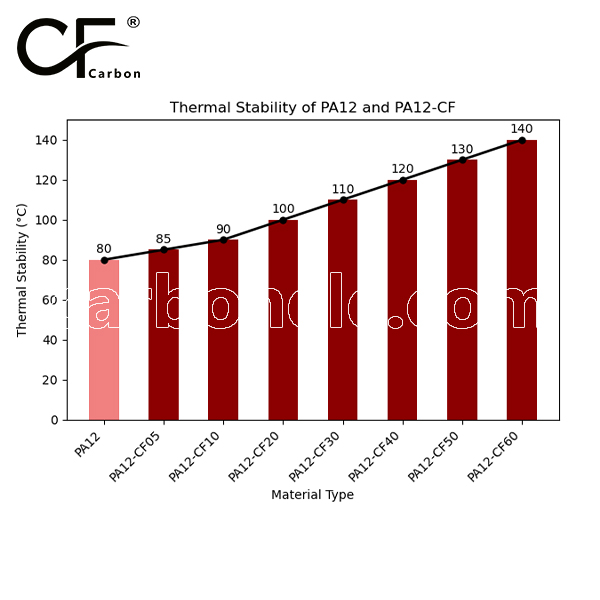
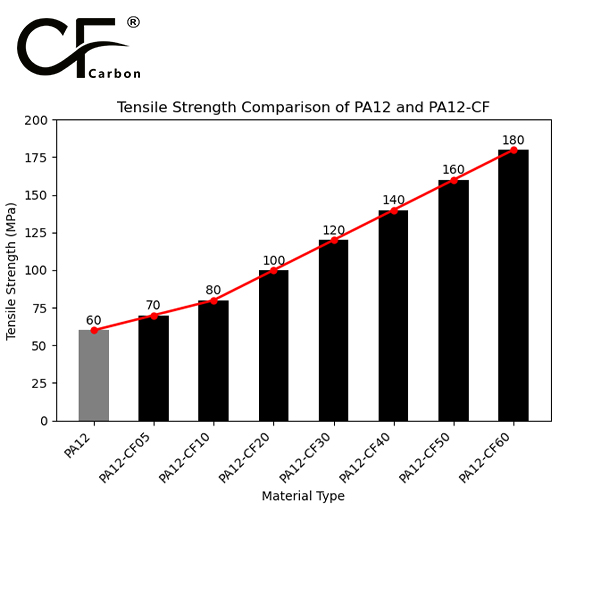

Frequently Asked Questions
Carbon (Xiamen) New Material Co., Ltd. aims to provide buyers with "one-stop" worry-free high-quality services. Here you can find all information about carbon fiber engineering plastics. If you still have questions, please send us an email for consultation!
-
How can I contact the manufacturer of a product that interests me?
When you find a product you are interested in, you can contact the manufacturer directly by sending an email and we will get back to you as soon as possible.
-
How do I find the products that interest me?
All you need to do is enter the keyword, product name in the search window and press the Enter key on your keyboard. Your search results page will then be displayed. You can also search within the product category pages on the home page. Each category is divided into subcategories, allowing you to refine your search and find products that interest you.
-
Where will I find a buying guide?
Please contact our after-sales service directly and we will provide you with a comprehensive operating guide.
-
What are CF Reinforced Thermoplastic Composites?
CF Reinforced Thermoplastic Composites are materials where carbon fibers are incorporated into a thermoplastic matrix. They combine the strength and stiffness of carbon fibers with the processability and recyclability of thermoplastics. For instance, they are used in automotive parts like bumper beams.
-
What are the benefits of CF Reinforced Thermoplastic Composites over traditional composites?
The key benefits include faster production cycles, easier recyclability, and better impact resistance. They also offer design flexibility. An example is in the manufacturing of consumer electronics casings where complex shapes can be achieved more easily.
-
How are CF Reinforced Thermoplastic Composites processed?
Common processing methods include injection molding, extrusion, and compression molding. Injection molding is widely used for mass production. For example, in the production of small components for the medical industry.
-
What industries use CF Reinforced Thermoplastic Composites?
They are utilized in aerospace, automotive, medical, and sports equipment industries. In aerospace, they can be found in interior components. In the medical field, they might be used in prosthetics.
-
How does the carbon fiber content affect the properties of the composites?
Higher carbon fiber content generally leads to increased strength and stiffness but may reduce ductility. A moderate content is often balanced for specific applications. For example, a higher content might be preferred in structural parts of a race car.
-
What are the challenges in using CF Reinforced Thermoplastic Composites?
Challenges include higher material costs, complex processing equipment requirements, and ensuring uniform fiber dispersion. Issues with adhesion between the fibers and the matrix can also arise. An example is in achieving consistent quality in large-scale production.







